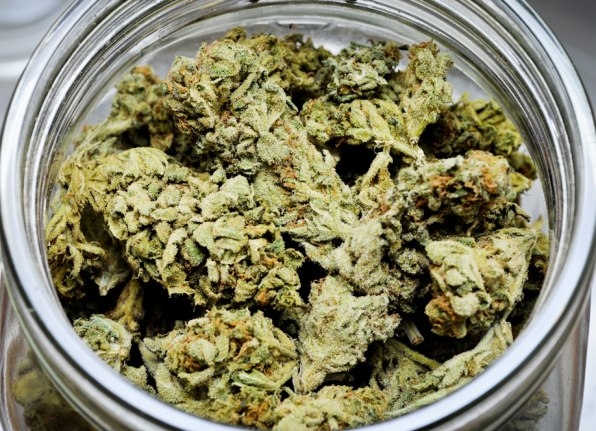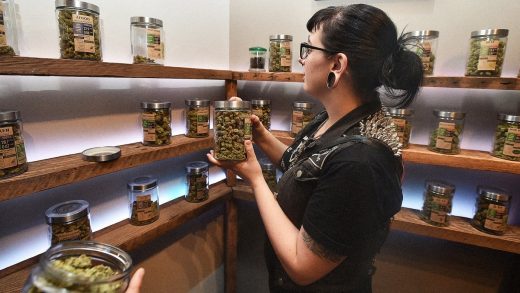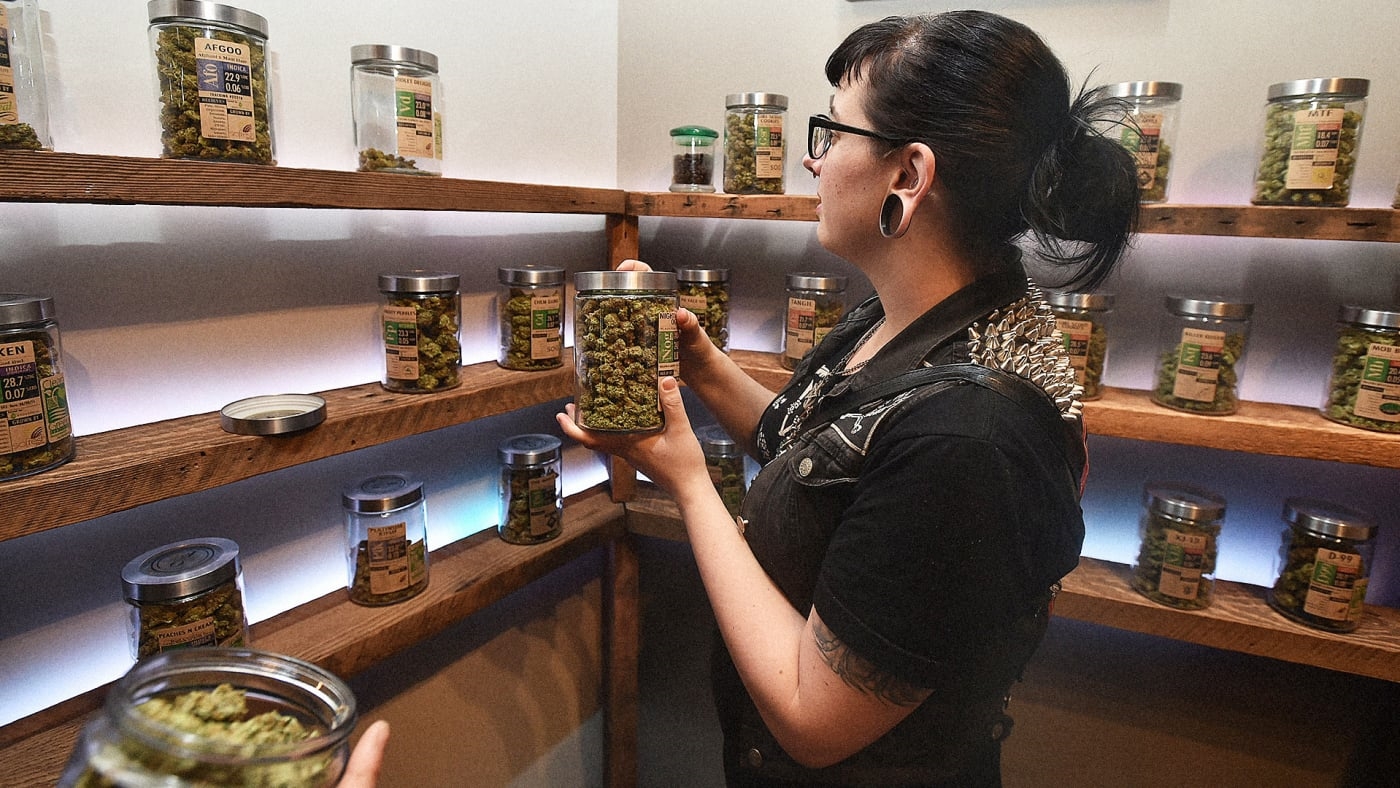Where Weed Is Legal, People Use Fewer Opioids
With opioid painkillers killing more than 90 Americans a day, the search is on for alternatives that kill pain without killing the patient. Could humble marijuana be one answer?
Two new studies help make the case. Both compare prescriptions of opioids in states that have and haven’t instituted medical cannabis laws. And each shows how legalization can reduce the numbers of doses being issued, presumably because people are turning to weed to manage to their conditions.
One study looks at opioid prescriptions under the Medicare Part D program between 2010 and 2015 (meaning mostly people aged 65 and over). The other at prescriptions under Medicaid between 2011 and 2016 (meaning mostly low-income Americans).
States allowing sales of medical weed through a dispensary saw opioid prescriptions fall by 14% (or 3.7 million daily doses), the first study published in JAMA Internal Medicine, says. There are now 29 states (and the District of Columbia) with medical marijuana laws, ranging from registering dispensaries to allowing only home-grown pot. The states that allow only home growers also saw a reduction, albeit by only 7%, or 1.8 million annual daily doses (the whole Medicare Part D program issued about 23 million opioids a day between 2010 and 2015).

The second paper, featured in the same journal, found a 6% reduction in Medicaid opioid prescriptions among all states with medical marijuana laws. “The potential of marijuana liberalization to reduce the use and consequences of prescription opioids.. deserves consideration during the policy discussions about marijuana reform and the opioid epidemic,” it says.
In interviews, the authors caution their studies don’t demonstrate cause-and-effect. There could be other factors for the fall in opioid prescriptions and the data doesn’t cover private healthcare or populations outside of low-income and elderly Americans.
But Hefei Wen, an assistant professor at the University of Kentucky and coauthor of the second study, points out that greater legalization tends to improve the reductions, possibly showing how looser rules increase the displacement effect. Colorado and Oregon, where the drug is fully legalized for adults, had 9% and 10% falls in opioid use, Wen told CNN.
The studies aren’t the first to show how cannabis could help with opioid crisis, which is caused by over-prescription and because people become addicted to pharmaceutical drugs to manage their pain. One, published last year, showed that Medicare saved about $165 million in 2013 from medical marijuana laws. Another, focused on Colorado, suggested marijuana use helped cut the rate of opioid-related deaths.
(44)



